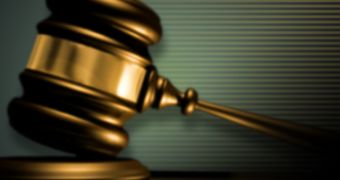7Search, a "Pay Per Click Search Engine Advertising and Affiliate Network" company whose website was associated with spyware distribution in the past, filed a lawsuit against McAfee for what they consider to be a false and deceptive warning coming from McAfee’s SiteAdvisor service.
"Feedback from credible users suggests that downloads on this site may contain what some people would consider adware, spyware, or other potentially unwanted programs," warns McAfee SiteAdvisor when the 7Search.com domain is checked. In response, 7Search claims that there is no download offered on its site since at least 2003. However, in the past, its website used to host the 7FaSSt Toolbar, which many security companies tagged as spyware because it installed itself by force using ActiveX and logged surfing habits of the users.
7Search wants McAfee to terminate the warning and be forced to pay damages. The complaint, filed at the US District Court in Illinois, motivates this by noting that "customers of 7Search who have opened accounts with 7Search.com have later terminated that business relationship as a result of seeing McAfee's false, deceptive, confusing and/or misleading statements and representations".
Interesting enough is that the person who is listed as domain owner for 7Search, Patrick Devereaux from Chicago, also owns other domains like browseraccelerator.com, which hosts yet another browser toolbar that is blocked by some security products. Eric Howes, director of malware research at Sunbelt Software, explains that this toolbar tries to "sneak advertising past the user without the user recognizing [that] the search results are sponsored, paid-for results."
The official McAfee statement regarding this incident specifies that "SiteAdvisor rates Web sites to make the Web safer to surf. Our methodologies provide for a repeatable and objective reasoning based on facts and the threat landscape. At times people disagree with our ratings. Those Web site owners are encouraged to work with us on such matters".
This lawsuit comes after a similar one filed by Zango Inc. against the well known anti-virus vendor Kaspersky Labs for tagging some of their products as malware. This kind of lawsuits seems to become a common practice and can jeopardize the security level products aimed to protect users will be able to offer in the future. However, Eric Goldman, a professor of law at Santa Clara University, explains on his blog how the Communications Decency Act (47 USC 230) can be invoked by the companies providing security software in order to protect themselves. This was invoked by Kaspersky and resulted in an initial favorable ruling, even though the case is now on appeal.

 14 DAY TRIAL //
14 DAY TRIAL //